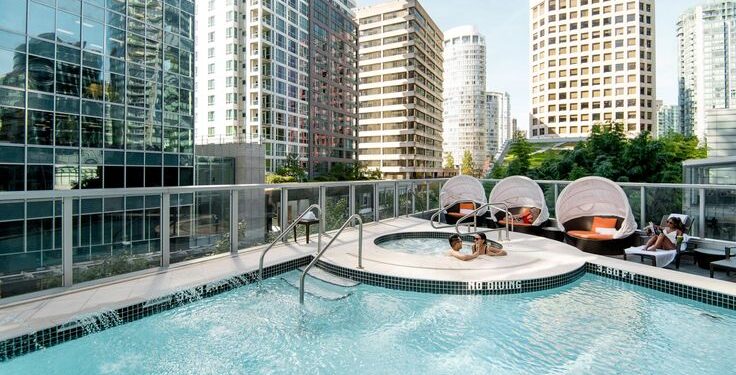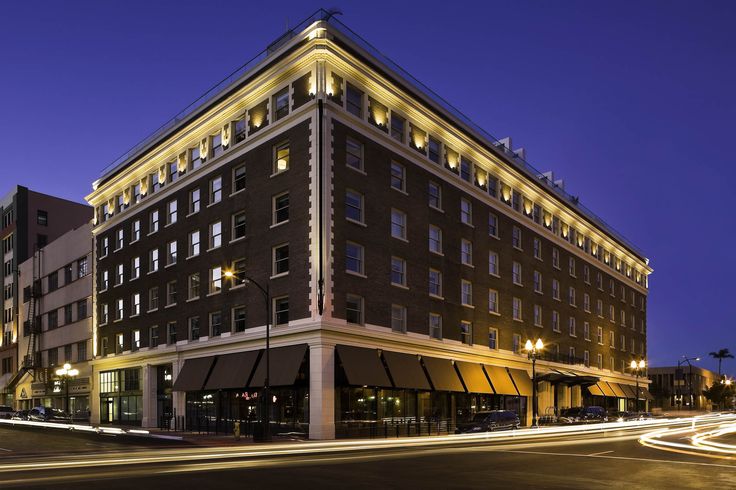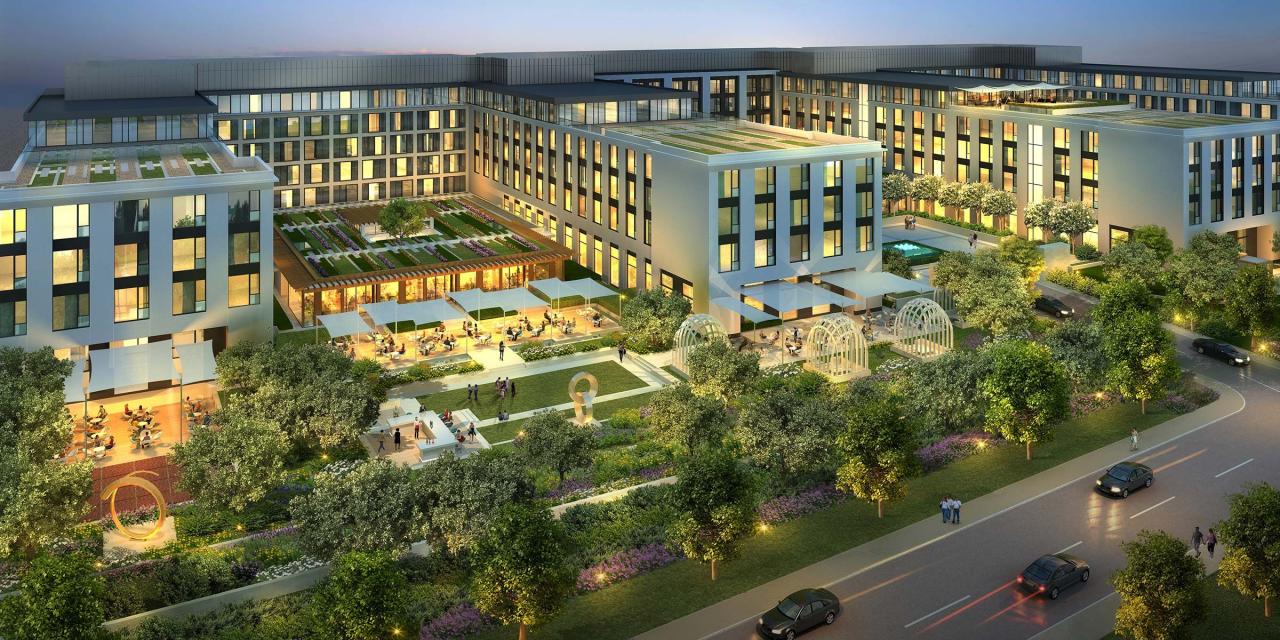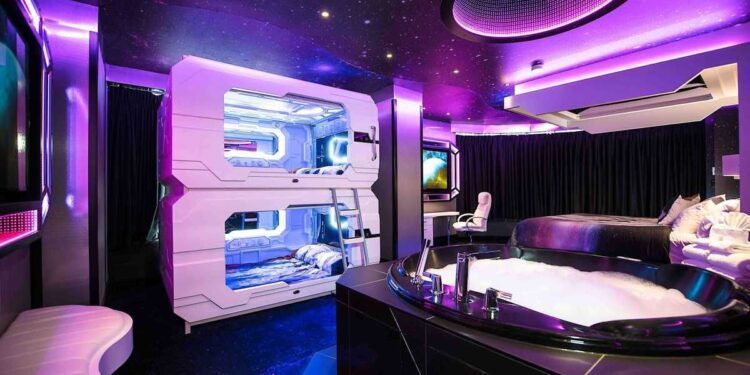City Hotels: Unveiling Urban Escape Gems
The concept of the urban hotel has undergone a remarkable metamorphosis, evolving far beyond mere lodging into sophisticated sanctuaries and vibrant cultural hubs nestled within the bustling heart of metropolises. For today’s discerning traveler, a city hotel isn’t just a place to sleep; it’s an integral part of the travel experience, offering curated amenities, unparalleled access to local attractions, and a sense of belonging in a dynamic urban landscape. This comprehensive article delves into the transformative trends reshaping urban hospitality, exploring how these city escapes are becoming indispensable gems for both leisure and business travelers seeking comfort, convenience, and a truly authentic connection to the city’s pulse. We’ll examine the forces driving this evolution, the innovative features now defining these establishments, and the critical role they play in enhancing the modern urban adventure.
The Evolution of Urban Hotels: More Than Just a Room
Historically, city hotels primarily served a utilitarian purpose: a place to rest after a day of business meetings or sightseeing. While functionality remains key, the modern urban hotel has elevated its offering significantly. It’s now a destination in itself, reflecting the unique character of its location and catering to a sophisticated clientele who value design, experience, and personalized service as much as convenience. This shift is driven by a desire for immersion, unique experiences, and a deeper connection to the city’s unique narrative.
A. Design as a Storyteller
Contemporary urban hotels are increasingly leveraging design as a powerful narrative tool, reflecting the cultural fabric, history, and artistic spirit of their surrounding neighborhoods. This moves beyond generic luxury to a thoughtful, often locally inspired aesthetic that creates a distinct sense of place.
- Boutique Charm and Individuality: Unlike large, standardized chains, boutique urban hotels prioritize unique architectural features, bespoke furniture, and curated art collections. Each property tells its own story, often incorporating elements from the building’s history or the local community’s heritage. Think of a hotel in an old industrial building reimagined with exposed brick and steel, or one in a historic district featuring restored period details blended with contemporary art.
- Locally Inspired Aesthetics: Designers are sourcing local materials, collaborating with local artisans, and integrating indigenous art forms into their interiors. This creates an authentic atmosphere that resonates with travelers seeking a genuine experience rather than a generic, globally recognizable style. This can include anything from incorporating traditional batik patterns in an Indonesian city hotel to using local stone and wood in a Scandinavian one.
- Thematic Concepts and Immersive Environments: Some hotels take design a step further by embracing specific themes, creating an immersive environment that transports guests. This could be a hotel inspired by a specific historical era, a literary movement, or even a futuristic vision, all executed with meticulous attention to detail in every aspect of the design, from lighting to textiles.
B. Curated Experiences and Local Immersion
The modern urban hotel acts as a gateway to the city, offering curated experiences that go beyond standard tourist itineraries. Travelers want to live like locals, discover hidden gems, and connect with the city’s authentic pulse.
- Partnerships with Local Businesses: Hotels are forging strong partnerships with nearby art galleries, independent boutiques, renowned local chefs, and community organizations. This allows them to offer guests exclusive access, private tours, or special discounts that enhance their exploration of the city. For example, a hotel might offer a private street art tour led by a local artist or a cooking class with a chef from a popular neighborhood eatery.
- Experiential Programming On-Site: Many urban hotels now host a variety of on-site events and activities designed to immerse guests in local culture. This could include live music performances by local bands, art exhibitions featuring emerging regional artists, pop-up markets showcasing artisanal crafts, or even workshops on local traditions like coffee making or traditional dance.
- Insider Access and Concierge Services: The hotel concierge has evolved into a highly knowledgeable local expert. They provide bespoke recommendations for off-the-beaten-path restaurants, hidden speakeasies, lesser-known cultural sites, and unique local events that cater to individual interests, providing a true insider’s perspective on the city. They often have connections that can secure last-minute reservations or tickets to exclusive shows.
C. Technology as an Enhancer, Not a Replacement
Technology in urban hotels is increasingly focused on enhancing convenience, personalization, and operational efficiency without sacrificing the human touch. It’s about making the guest’s stay smoother and more intuitive.
- Seamless Digital Check-in and Keyless Entry: Many hotels now offer mobile check-in services, allowing guests to bypass the front desk entirely. Digital room keys accessible via smartphone apps provide a convenient and secure way to access rooms, eliminating the need for physical key cards and reducing waiting times.
- AI-Powered Personalization and Concierge Bots: AI algorithms are being used to analyze guest preferences, allowing hotels to anticipate needs and offer personalized recommendations for dining, entertainment, or services. Chatbots are increasingly common for handling routine inquiries, freeing up human staff for more complex or personalized interactions. This can include recommending nearby attractions based on a guest’s past interests or pre-stocking the mini-bar with their preferred beverages.
- Smart Room Technology: Guest rooms are becoming increasingly smart, allowing travelers to control lighting, temperature, curtains, and even entertainment systems through a tablet or their personal device. Some hotels also offer in-room virtual assistants that can answer questions, order room service, or set wake-up calls.
- High-Speed, Ubiquitous Connectivity: Reliable, high-speed Wi-Fi is no longer a luxury but a fundamental expectation. Urban hotels are ensuring seamless connectivity throughout the property, from common areas to guest rooms, recognizing that guests need to stay connected for both business and leisure.
The Modern Urban Hotel: A Hub of Activity
Beyond being a place to sleep, today’s urban hotel often functions as a vibrant social hub, attracting not only guests but also locals who come to enjoy its amenities, dining options, and atmosphere. This creates a dynamic, engaging environment that reflects the city’s energy.
A. Elevated Food and Beverage Concepts
Gone are the days of generic hotel restaurants. Urban hotels are investing heavily in innovative food and beverage concepts that stand as culinary destinations in their own right, attracting both hotel guests and the local community.
- Signature Restaurants with Celebrity Chefs: Many hotels are collaborating with acclaimed chefs to create unique dining experiences, ranging from fine dining establishments to trendy bistros, often incorporating local ingredients and culinary traditions. These restaurants are often independently recognized for their quality, drawing in a sophisticated local clientele.
- Rooftop Bars and Social Lounges: Rooftop bars offering panoramic city views have become essential social spaces, providing a chic setting for cocktails and networking. Ground-floor lounges and cafes are designed as inviting co-working spaces during the day and lively social hubs in the evenings, complete with curated music and ambiance.
- Farm-to-Table and Sustainable Dining: Reflecting broader culinary trends, many urban hotels are emphasizing sustainable sourcing, local produce, and ethical practices in their kitchens. This appeals to guests who are conscious about their food choices and seek fresh, high-quality ingredients.
- Specialty Coffee Shops and Bakeries: Recognizing the global demand for quality coffee, many urban hotels now feature their own specialty coffee shops or partnerships with renowned local roasters, providing a convenient and high-quality option for guests and passersby.
B. Wellness and Fitness Offerings
The modern urban traveler prioritizes well-being, even when on the go. Urban hotels are responding by providing sophisticated wellness and fitness facilities that cater to both physical and mental health.
- State-of-the-Art Fitness Centers: Beyond basic gyms, hotels are equipping their fitness centers with advanced exercise equipment, often including Peloton bikes, interactive trainers, and dedicated spaces for yoga or meditation. Some offer personalized training sessions or group classes.
- Urban Spas and Relaxation Zones: These are designed as tranquil retreats from the city’s hustle and bustle. They often feature a range of luxurious treatments, from massages and facials to hydrotherapy and holistic therapies, providing a comprehensive wellness experience.
- Rooftop Pools and Outdoor Spaces: In many urban environments, a rooftop pool offers a refreshing oasis with stunning city views, providing a unique space for relaxation and leisure. Other outdoor spaces like urban gardens or terraces offer green sanctuaries for guests to unwind.
- Partnerships with Local Wellness Studios: Some hotels collaborate with nearby yoga studios, cycling classes, or meditation centers, offering guests discounted rates or exclusive access to off-site wellness experiences.
C. Co-Working and Business Facilities
With the rise of remote work and the blending of business and leisure travel, urban hotels are increasingly offering sophisticated co-working spaces and flexible business facilities.
- Dedicated Co-Working Lounges: These spaces are designed with modern workers in mind, featuring high-speed internet, comfortable seating, charging stations, and often complimentary coffee and snacks. They provide a productive alternative to working from the guest room.
- Flexible Meeting and Event Spaces: Hotels are designing meeting rooms that can be easily reconfigured to accommodate various group sizes and event types, from intimate board meetings to larger conferences or social gatherings, often equipped with advanced AV technology.
- Business Centers with Essential Services: While physical business centers may be shrinking, essential services like printing, scanning, and secure shipping are still available, often managed through digital platforms or by concierge staff.
- Networking Events and Professional Gatherings: Some urban hotels proactively host networking events, industry meetups, or workshops, leveraging their role as a central hub to foster connections among guests and local professionals.
The Future of Urban Hotels
The trajectory of urban hotels points towards even greater integration with their surrounding communities, enhanced personalization, and a deeper commitment to sustainability. Several key areas are poised for significant growth and innovation.
A. Hyper-Local Integration and Community Engagement
Future urban hotels will become even more embedded in their local neighborhoods, acting as true community anchors and fostering reciprocal relationships.
- Micro-Hotels and Neighborhood Hubs: Expect smaller, more intimate hotels that are deeply integrated into specific neighborhoods, reflecting their unique character. These hotels might feature ground-floor spaces that double as cafes, art galleries, or community event spaces, blurring the lines between hotel and local establishment.
- Cultural Preservation and Storytelling: Hotels will increasingly play a role in preserving and promoting local heritage. This could involve partnering with local historical societies, showcasing traditional crafts, or hosting educational programs that share the neighborhood’s unique story with guests and locals alike.
- Supporting Local Ecosystems: This extends beyond just sourcing food. Hotels might actively participate in local clean-up initiatives, support local charities, or provide training and employment opportunities for community members, becoming responsible corporate citizens.
B. Advanced Personalization Through Data and Biometrics
The next wave of personalization will move beyond preferences to predictive service, leveraging data and even biometric technology (with strong privacy safeguards).
- Anticipatory Service: Imagine a hotel system that knows your preferred room temperature upon arrival, your favorite coffee order delivered to your room without asking, or a personalized selection of local events pushed to your device based on your past interests, all made possible by advanced data analytics and AI.
- Seamless Biometric Access: While still in early stages, biometric solutions like facial recognition or fingerprint scanning could offer ultra-fast, secure access to rooms, amenities, and personalized services, further streamlining the guest experience (with clear opt-in and privacy policies).
- Voice-Activated Guest Services: Beyond basic smart room controls, voice-activated assistants will become more sophisticated, able to handle complex requests, provide detailed local information, and seamlessly manage all aspects of the guest’s stay through natural language commands.
C. Sustainability and Regenerative Practices
As environmental concerns grow, urban hotels will deepen their commitment to sustainability, moving towards regenerative practices that actively benefit the environment and local communities.
- Net-Zero Operations: Hotels will strive to achieve net-zero carbon emissions through renewable energy sources, advanced energy efficiency systems, and robust carbon offsetting programs. This includes everything from smart HVAC systems to on-site solar panels.
- Waste Reduction and Circular Economy Models: Expect more aggressive waste reduction programs, including eliminating single-use plastics, implementing comprehensive recycling and composting initiatives, and exploring circular economy models where waste from one process becomes a resource for another (e.g., composting food waste for urban gardens).
- Green Building Certifications and Biophilic Design: New urban hotels will increasingly seek stringent green building certifications (like LEED or BREEAM) and incorporate biophilic design principles that connect guests with nature through natural light, indoor greenery, and views of urban landscapes, improving well-being.
- Water Conservation Technologies: Advanced water recycling systems, low-flow fixtures, and smart irrigation for urban green spaces will become standard, reflecting a commitment to responsible water management in densely populated areas.
D. Blending Work, Leisure, and Local Life
The lines between different aspects of life are blurring, and urban hotels will adapt to this by creating spaces that seamlessly cater to multiple needs.
- “Work-From-Hotel” Packages: Hotels will offer attractive packages for digital nomads and remote workers, combining long-stay discounts with access to dedicated co-working spaces, enhanced connectivity, and wellness amenities, turning the hotel into a temporary urban base.
- Flexible Public Spaces: Lobby areas, lounges, and F&B outlets will be designed with extreme flexibility in mind, easily transforming from quiet co-working zones in the morning to bustling social hubs in the evening, accommodating diverse activities and needs throughout the day.
- Community-Integrated Residential Options: Some urban hotels might even integrate a residential component, offering long-term stays or branded residences that provide hotel amenities to permanent residents, fostering a deeper sense of community within the building itself.
Conclusion
The modern urban hotel is a testament to innovation, adaptability, and an unwavering commitment to the guest experience. It has shed its conventional skin to emerge as a dynamic, multifaceted entity that not only provides luxurious comfort but also serves as a vital gateway to the city’s unique narrative. From meticulously designed interiors that tell local stories to cutting-edge technology that personalizes every interaction, and from vibrant culinary scenes that attract locals to wellness facilities that rejuvenate the mind and body, these establishments are truly the urban escape gems of the future. They are no longer just places to stay; they are integral parts of the urban adventure, offering a harmonious blend of convenience, culture, and connection that ensures every city visit is not just a trip, but a truly unforgettable journey into the heart of metropolitan life. As urban landscapes continue to evolve, so too will their hotels, promising even more innovative, sustainable, and personalized experiences for the discerning traveler.










